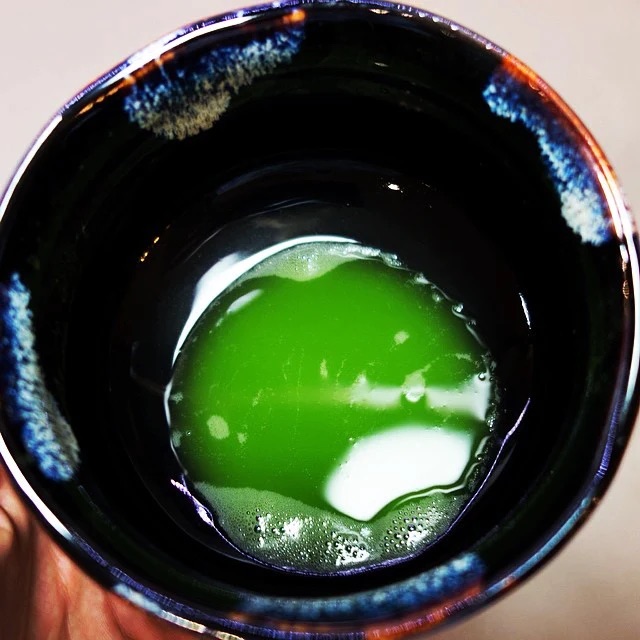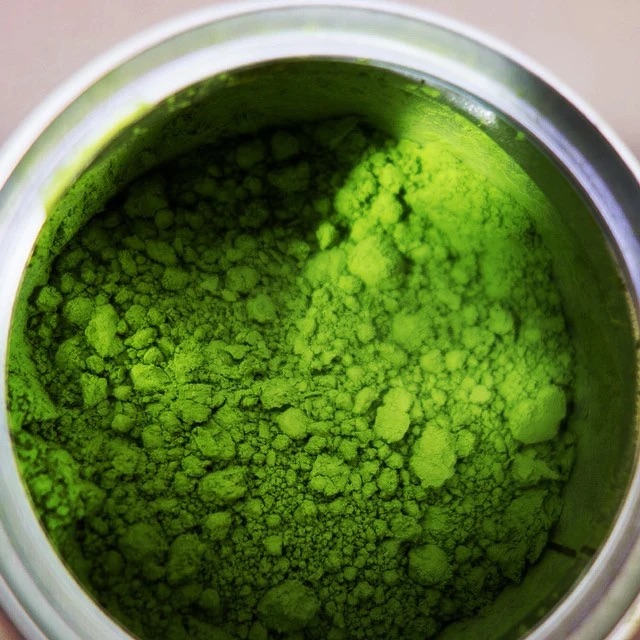The health benefits of matcha
It’s a real challenge to find a food that both provides an epicurean experience unlike any other, and is also a superfood, i.e. one of the healthiest foods you can eat.
To our knowledge, no food or beverage meets both these criteria. While a Grand Cru wine offers a truly epicurean experience, even consumed in small quantities, a great wine can have devastating effects on health.
What is a superfood?
Examples of so-called superfoods are pomegranate, goji berries, wild blueberries, acai berries, mackerel, sardines, fresh turmeric, ginger, cocoa, avocado, walnuts, pumpkin, and regular green tea.
They’re both healthy and delicious, but they’re not really considered epicurean experiences like a glass of Romanée Conti.
Drinking premium artisan matcha is like drinking a Grand Cru wine like Romanée Conti AND getting at least ten times the health benefits of the superfoods listed above.
It’s a real revelation: it’s as if my doctor had prescribed a glass of Romanée Conti with every meal, for better concentration, weight loss, fresher breath, boosted immunity, and a good mood, like a kind of calm euphoria comparable to what Buddhists call satori.

Matcha is rich in antioxidants
…which act as anti-inflammatory and anti-viral agents in the body. Antioxidant levels in foods can be measured using the ORAC unit (Oxygen Radical Absorbance Capacity).
Here are some ORAC figures for common superfoods, per 1 gram:
- Goji berries: 253
- Dark chocolate: 227
- Pomegranate: 105
- Wild blueberries: 93
- Acai berries: 60
- Broccoli: 30
- And matcha? 1685! That’s a lot more than all these superfoods put together.
Antioxidants in matcha
There are many antioxidants, but one of the most important is a flavonoid/catechin called EGCG (epigallocatechin gallate), and matcha is very rich in EGCG.

Matcha tea contains around 140 times the EGCG of normal green tea, because the tea leaf is entirely consumed.
It’s not impregnated, or worse, extracted (beware of health claims for extracted green tea, many of which are false). The synergistic effect of the tea leaf’s soluble and insoluble fibers is responsible for matcha’s high antioxidant content.
Wikipedia lists many studies showing that EGCG in quantity can be beneficial in the treatment of brain, prostate, cervical and other cancers. Other studies show that matcha promotes fat burning, aids digestion, improves oral hygiene and helps boost immunity.
Matcha boosts your brain
Matcha drinkers noticed clearer, faster thinking, improved memory for names and numbers, heightened alertness, a good mood, a “calm euphoria”, and improved ability to concentrate when studying, working or driving. I myself have observed the same effects when drinking matcha.
A bowl of matcha before your lunch break will help limit the early afternoon crash.
In short, matcha is a billion times better for you than other teas, because all the beneficial action is in the leaves, which are savoured and swallowed whole.
Chlorophyll from matcha for a detox cure
Matcha contains a lot of chlorophyll (thanks to the shading process), which gives it its amazing green color.
Doctors and researchers claim that chlorophyll is one of the most powerful blood detoxifiers, and a considerable ally in the creation of ideal blood alkalinity.

Matcha helps stabilize blood sugar levels
There appears to be a direct link between antioxidant activity and hypoglycemic activity.
The natural sugars (polysaccharides) in matcha help stabilize blood sugar levels, thus protecting against insulin spikes. Concentrated green tea polysaccharides are used in the treatment of diabetes in China.
Anti-aging properties
Antioxidants are desirable because they destroy free radicals, which are atoms with unpaired electrons, known to damage DNA and accelerate the aging process (a theory known as the Free Radical Theory of Aging).
Two studies (including 1331 women with breast cancer) found a significant reduction (27%) in breast cancer recurrence in women who drank three or more cups of green tea a day.
Other studies can be found in the article listing the scientific research on Matcha tea.